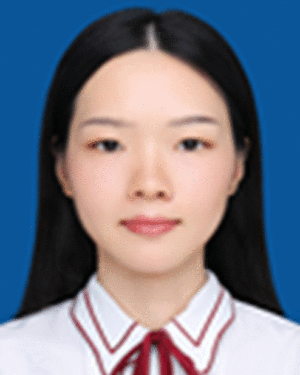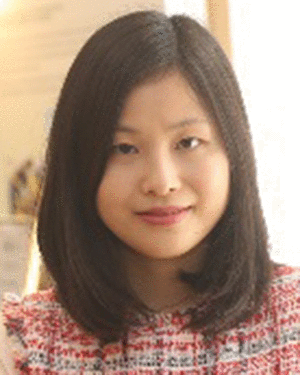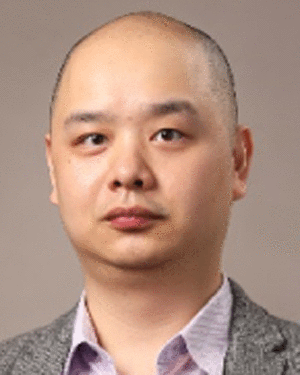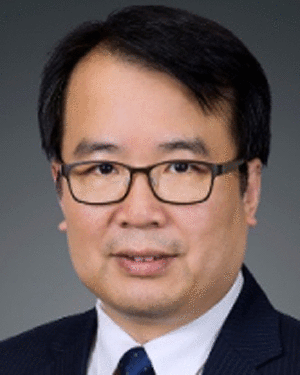Abstract:
Research on Educational Metaverse (Edu-Metaverse) has developed into an active research field. Based on 310 academic papers published from 2004 to 2022, this study identi...Show MoreMetadata
Abstract:
Research on Educational Metaverse (Edu-Metaverse) has developed into an active research field. Based on 310 academic papers published from 2004 to 2022, this study identifies contributors, scientific cooperations, and research themes using bibliometrics, social network analysis, topic modeling, and keyword analysis. Results suggest that Edu-Metaverse has been gaining increasing attention in academia since 2019. Countries/affiliations located in the same regions are close partners in scientific cooperation. By jointly interpreting topic modeling and keyword analysis results, this study reveals eight main themes in the field of Edu-Metaverse: 1) Metaverse-based physical education; 2) Metaverse-supported simulations for collaborative problem-based learning (PBL) in health/medical education; 3) 3-D virtual learning environment-supported art appreciation and creation in art education; 4) Metaverse-enabled laboratories for STEM education; 5) language and 21st century skill development through Metaverse-supported immersive language learning; 6) Metaverse for developing autism children’ social communication abilities; 7) virtual world Metaverse-supported gameful experience-based education; and 8) quantitative research on Edu-Metaverse focusing on learners’ experience. We also identified challenges and directions needing further attention: 1) data security and privacy protection; 2) balance between the real world and virtual world identities; 3) preparing instructors for Edu-Metaverse; and 4) assessment of higher-order thinking competencies in Edu-Metaverse-based PBL. This work helps facilitate researchers’ and practitioners’ understanding of Edu-Metaverse research and raises their awareness of research frontiers and future directions.
Published in: IEEE Transactions on Learning Technologies ( Volume: 16, Issue: 6, December 2023)
Funding Agency:

Guangzhou University, Guangzhou, China
Xieling Chen received the Ph.D. degree in educational technology from the Education University of Hong Kong, Hong Kong, in 2022.
She is currently an Associate Professor with Guangzhou University, Guangzhou, China. She has authored or coauthored more than 60 publications. Stanford University has listed her as one of the World's Top 2% Scientists in 2022. Her research interests include artificial intelligence in education an...Show More
Xieling Chen received the Ph.D. degree in educational technology from the Education University of Hong Kong, Hong Kong, in 2022.
She is currently an Associate Professor with Guangzhou University, Guangzhou, China. She has authored or coauthored more than 60 publications. Stanford University has listed her as one of the World's Top 2% Scientists in 2022. Her research interests include artificial intelligence in education an...View more

The Education University of Hong Kong, Hong Kong, SAR, China
Di Zou received the Ph.D. degree in English from the City University of Hong Kong, Hong Kong, in 2013.
She is currently an Assistant Professor with the Education University of Hong Kong, Hong Kong. She has authored or coauthored more than 150 publications. Stanford University has listed her as one of the World's Top 2% Scientists in 2021 and 2022. Her research interests include artificial intelligence in language educatio...Show More
Di Zou received the Ph.D. degree in English from the City University of Hong Kong, Hong Kong, in 2013.
She is currently an Assistant Professor with the Education University of Hong Kong, Hong Kong. She has authored or coauthored more than 150 publications. Stanford University has listed her as one of the World's Top 2% Scientists in 2021 and 2022. Her research interests include artificial intelligence in language educatio...View more

Lingnan University, Hong Kong, SAR, China
Haoran Xie (Senior Member, IEEE) received the Ph.D. degree in computer science from the City University of Hong Kong, Hong Kong, in 2013, and the Ed.D. degree in digital learning from the University of Bristol, Bristol, England, in 2022.
He is currently an Associate Professor with Lingnan University, Hong Kong. He has authored or coauthored more than 320 publications. Stanford University has listed him as one of the World'...Show More
Haoran Xie (Senior Member, IEEE) received the Ph.D. degree in computer science from the City University of Hong Kong, Hong Kong, in 2013, and the Ed.D. degree in digital learning from the University of Bristol, Bristol, England, in 2022.
He is currently an Associate Professor with Lingnan University, Hong Kong. He has authored or coauthored more than 320 publications. Stanford University has listed him as one of the World'...View more

Hong Kong Metropolitan University, Hong Kong, SAR, China
Fu Lee Wang (Senior Member, IEEE) received the Ph.D. degree in systems engineering and engineering management from the Chinese University of Hong Kong, Hong Kong, in 2003.
He is currently the Dean and a Professor with Hong Kong Metropolitan University, Hong Kong. He has authored or coauthored more than 300 publications and 40 grants with more than 80 million Hong Kong dollars. His research interests include e-learning and ...Show More
Fu Lee Wang (Senior Member, IEEE) received the Ph.D. degree in systems engineering and engineering management from the Chinese University of Hong Kong, Hong Kong, in 2003.
He is currently the Dean and a Professor with Hong Kong Metropolitan University, Hong Kong. He has authored or coauthored more than 300 publications and 40 grants with more than 80 million Hong Kong dollars. His research interests include e-learning and ...View more

Guangzhou University, Guangzhou, China
Xieling Chen received the Ph.D. degree in educational technology from the Education University of Hong Kong, Hong Kong, in 2022.
She is currently an Associate Professor with Guangzhou University, Guangzhou, China. She has authored or coauthored more than 60 publications. Stanford University has listed her as one of the World's Top 2% Scientists in 2022. Her research interests include artificial intelligence in education and text mining.
Xieling Chen received the Ph.D. degree in educational technology from the Education University of Hong Kong, Hong Kong, in 2022.
She is currently an Associate Professor with Guangzhou University, Guangzhou, China. She has authored or coauthored more than 60 publications. Stanford University has listed her as one of the World's Top 2% Scientists in 2022. Her research interests include artificial intelligence in education and text mining.View more

The Education University of Hong Kong, Hong Kong, SAR, China
Di Zou received the Ph.D. degree in English from the City University of Hong Kong, Hong Kong, in 2013.
She is currently an Assistant Professor with the Education University of Hong Kong, Hong Kong. She has authored or coauthored more than 150 publications. Stanford University has listed her as one of the World's Top 2% Scientists in 2021 and 2022. Her research interests include artificial intelligence in language education and technology-enhanced language learning.
Dr. Zou is an Editor for Computers & Education.
Di Zou received the Ph.D. degree in English from the City University of Hong Kong, Hong Kong, in 2013.
She is currently an Assistant Professor with the Education University of Hong Kong, Hong Kong. She has authored or coauthored more than 150 publications. Stanford University has listed her as one of the World's Top 2% Scientists in 2021 and 2022. Her research interests include artificial intelligence in language education and technology-enhanced language learning.
Dr. Zou is an Editor for Computers & Education.View more

Lingnan University, Hong Kong, SAR, China
Haoran Xie (Senior Member, IEEE) received the Ph.D. degree in computer science from the City University of Hong Kong, Hong Kong, in 2013, and the Ed.D. degree in digital learning from the University of Bristol, Bristol, England, in 2022.
He is currently an Associate Professor with Lingnan University, Hong Kong. He has authored or coauthored more than 320 publications. Stanford University has listed him as one of the World's Top 2% Scientists in 2021 and 2022. His research interests include artificial intelligence in education and Big Data.
Dr. Xie is the Editor-in-Chief and an Associate Editor of several SCI/SSCI journals.
Haoran Xie (Senior Member, IEEE) received the Ph.D. degree in computer science from the City University of Hong Kong, Hong Kong, in 2013, and the Ed.D. degree in digital learning from the University of Bristol, Bristol, England, in 2022.
He is currently an Associate Professor with Lingnan University, Hong Kong. He has authored or coauthored more than 320 publications. Stanford University has listed him as one of the World's Top 2% Scientists in 2021 and 2022. His research interests include artificial intelligence in education and Big Data.
Dr. Xie is the Editor-in-Chief and an Associate Editor of several SCI/SSCI journals.View more

Hong Kong Metropolitan University, Hong Kong, SAR, China
Fu Lee Wang (Senior Member, IEEE) received the Ph.D. degree in systems engineering and engineering management from the Chinese University of Hong Kong, Hong Kong, in 2003.
He is currently the Dean and a Professor with Hong Kong Metropolitan University, Hong Kong. He has authored or coauthored more than 300 publications and 40 grants with more than 80 million Hong Kong dollars. His research interests include e-learning and information retrieval.
Dr. Wang was the Chair of ACM Hong Kong Chapter and IEEE Hong Kong Section Computer Society.
Fu Lee Wang (Senior Member, IEEE) received the Ph.D. degree in systems engineering and engineering management from the Chinese University of Hong Kong, Hong Kong, in 2003.
He is currently the Dean and a Professor with Hong Kong Metropolitan University, Hong Kong. He has authored or coauthored more than 300 publications and 40 grants with more than 80 million Hong Kong dollars. His research interests include e-learning and information retrieval.
Dr. Wang was the Chair of ACM Hong Kong Chapter and IEEE Hong Kong Section Computer Society.View more

